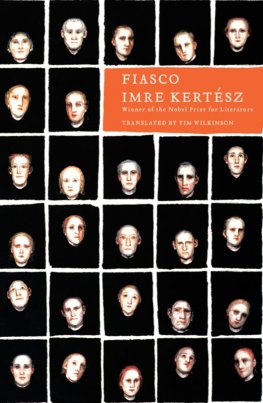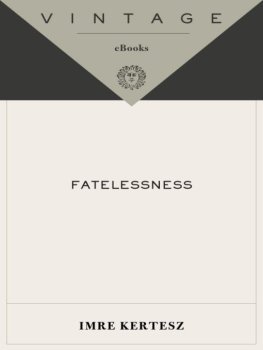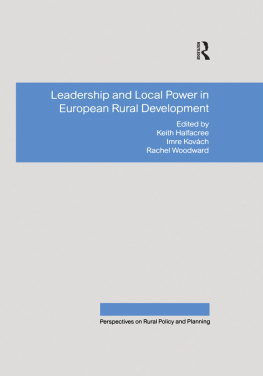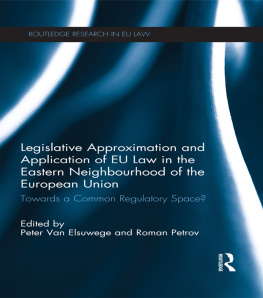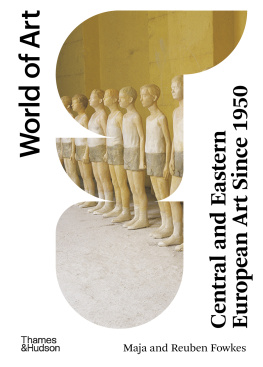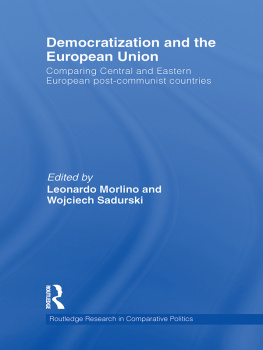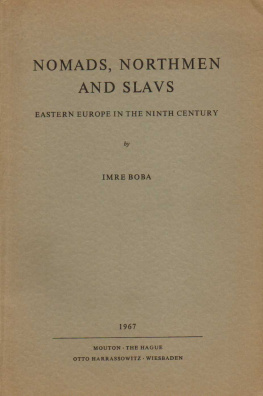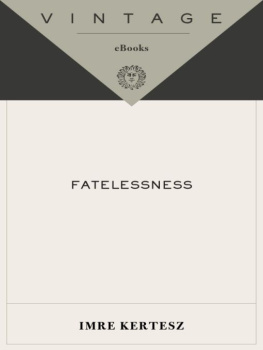Imre - A Companion to Eastern European Cinemas
Here you can read online Imre - A Companion to Eastern European Cinemas full text of the book (entire story) in english for free. Download pdf and epub, get meaning, cover and reviews about this ebook. year: 2012, publisher: Wiley, genre: Politics. Description of the work, (preface) as well as reviews are available. Best literature library LitArk.com created for fans of good reading and offers a wide selection of genres:
Romance novel
Science fiction
Adventure
Detective
Science
History
Home and family
Prose
Art
Politics
Computer
Non-fiction
Religion
Business
Children
Humor
Choose a favorite category and find really read worthwhile books. Enjoy immersion in the world of imagination, feel the emotions of the characters or learn something new for yourself, make an fascinating discovery.

A Companion to Eastern European Cinemas: summary, description and annotation
We offer to read an annotation, description, summary or preface (depends on what the author of the book "A Companion to Eastern European Cinemas" wrote himself). If you haven't found the necessary information about the book — write in the comments, we will try to find it.
Imre: author's other books
Who wrote A Companion to Eastern European Cinemas? Find out the surname, the name of the author of the book and a list of all author's works by series.
A Companion to Eastern European Cinemas — read online for free the complete book (whole text) full work
Below is the text of the book, divided by pages. System saving the place of the last page read, allows you to conveniently read the book "A Companion to Eastern European Cinemas" online for free, without having to search again every time where you left off. Put a bookmark, and you can go to the page where you finished reading at any time.
Font size:
Interval:
Bookmark:
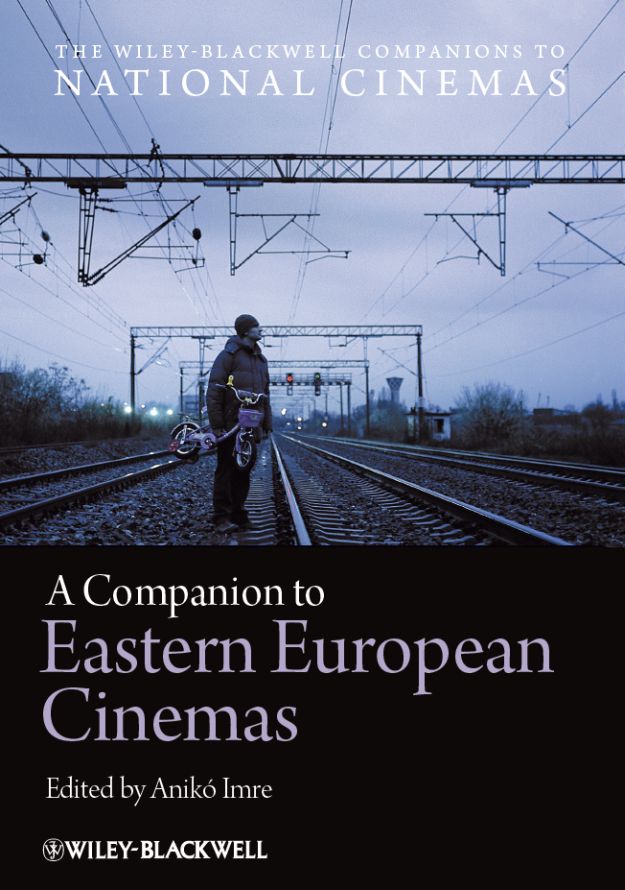
The Wiley-Blackwell Companions to National Cinemas showcase the rich film heritages of various countries across the globe. Each volume sets the agenda for what is now known as world cinema while challenging Hollywoods lock on the popular and scholarly imagination. Whether exploring Spanish, German, or Chinese film, or the broader traditions of Eastern Europe, Scandinavia, Australia, and Latin America the 2025 newly commissioned essays comprising each volume include coverage of the dominant themes of canonical, controversial, and contemporary films; stars, directors, and writers; key influences; reception; and historiography and scholarship. Written in a sophisticated and authoritative style by leading experts they will appeal to an international audience of scholars, students, and general readers.
A Companion to German Cinema, edited by Terri Ginsberg and Andrea Mensch
A Companion to Chinese Cinema, edited by Yingjin Zhang
A Companion to Eastern European Cinemas, edited by Anik Imre
A Companion to Spanish Cinema, edited by Jo Labanyi and Tatjana Pavlovic

This edition first published 2012
2012 John Wiley & Sons, Inc
Wiley-Blackwell is an imprint of John Wiley & Sons, formed by the merger of Wileys global Scientific, Technical and Medical business with Blackwell Publishing.
Registered Office
John Wiley & Sons, Ltd, The Atrium, Southern Gate, Chichester, West Sussex,
PO19 8SQ, UK
Editorial Offices
350 Main Street, Malden, MA 02148-5020, USA
9600 Garsington Road, Oxford, OX4 2DQ, UK
The Atrium, Southern Gate, Chichester, West Sussex, PO19 8SQ, UK
For details of our global editorial offices, for customer services, and for information about how to apply for permission to reuse the copyright material in this book please see our website at www.wiley.com/wiley-blackwell .
The right of Anik Imre to be identified as the author of the editorial material in this work has been asserted in accordance with the UK Copyright, Designs and Patents Act 1988.
All rights reserved. No part of this publication may be reproduced, stored in a retrieval system, or transmitted, in any form or by any means, electronic, mechanical, photocopying, recording or otherwise, except as permitted by the UK Copyright, Designs and Patents Act 1988, without the prior permission of the publisher.
Wiley also publishes its books in a variety of electronic formats. Some content that appears in print may not be available in electronic books.
Designations used by companies to distinguish their products are often claimed as trademarks. All brand names and product names used in this book are trade names, service marks, trademarks or registered trademarks of their respective owners. The publisher is not associated with any product or vendor mentioned in this book. This publication is designed to provide accurate and authoritative information in regard to the subject matter covered. It is sold on the understanding that the publisher is not engaged in rendering professional services. If professional advice or other expert assistance is required, the services of a competent professional should be sought.
Library of Congress Cataloging-in-Publication Data
A companion to Eastern European cinemas / edited by Anik Imre.
p. cm. (Wiley-Blackwell companions to national cinemas)
Includes bibliographical references and index.
ISBN 978-1-4443-3725-9 (hardback : alk. paper)
1. Motion picturesEurope, Eastern. I. Imre, Anik.
PN1993.5.E82C77 2012
791.430947dc23
2011044672
A catalogue record for this book is available from the British Library.
Cover design by Nicki Averill Design and Illustration
Cover illustration: Aurora, 2010, directed by Christi Puiu. Courtesy of Mandragora, www.mandragora.ro
Alice Bardan received her doctorate from the University of Southern California in 2011. Her research and teaching interests are in European and East European media, world cinema, and new media. Her publications appeared in the edited volume Transnational Feminism in Film and Media (Palgrave, 2007) and in the refered journal New Cinemas (Intellect, 2008). In addition, she has new articles in Branding Post-Communist Nations (Routledge, 2011), Popular Television in Eastern Europe During and Since Socialism, Not Necessarily the News? News Parody and Political Satire Across the Globe, and Popular Communication.
Melis Behlil is Assistant Professor and department head at the Radio, TV and Cinema Department of Kadir Has University in Istanbul, Turkey, as well as a member of the NECS (European Network for Cinema and Media Studies) Steering Committee. Her research interests are film industries, production studies, and globalization. In addition to teaching and other academic duties, she writes film reviews for various publications, co-hosts a weekly radio show, and is a FIPRESCI member.
John Cunningham teaches film studies at Sheffield Hallam University in the United Kingdom and is the editor of the journal Studies in Eastern European Cinema. His publications include Hungarian Cinema: From Coffeehouse to Multiplex (2004) and numerous articles on Eastern European cinema. Visions of Europe, his study of Istvn Szab, is awaiting publication. In November 2010 he was presented with the Pro Hungaria Cultura award for his services to Hungarian art and culture.
Greg De Cuir, Jr. is the managing editor of NECSUS_European Journal of Media Studies (Amsterdam University Press). His writing has appeared in Cineaste, Jump Cut, Studies in Eastern European Cinema, and KinoKultura as well as other international publications, and his book Yugoslav Black Wave: Polemical Cinema from 196372 in the Socialist Federal Republic of Yugoslavia (Film Center Serbia) was nominated for Edition of the Year at the 2011 Belgrade International Book Fair. Mr de Cuir is a member of FIPRESCI and is also the selector/programmer for Alternative Film/Video Belgrade.
Shekhar Deshpande is Professor and Chair of the Department of Media and Communication at Arcadia University. His main interests are in world cinema, visual cultures, and philosophy of film. His work has appeared in Senses of Cinema, Journal of European Cinema, Widescreen, and Film International. He is working on a book on anthology film.
Nikolina Dobreva holds a PhD in comparative literature from the University of MassachusettsAmherst. She has researched and published on Romani representation in international cinema and television. Nikolina is currently setting up an archive/research website on Eastern European cinema and media.
Michael Goddard is a lecturer in media studies at the University of Salford. His current research centers on Polish and European cinema and visual culture and he is reviews editor of Studies in Eastern European Cinema (SEEC). He has just completed a book on the cinema of the Chilean-born filmmaker Ral Ruiz. His research on Deleuzes aesthetic and film theories has resulted in a number of publications. He has also been studying the fringes of popular music focusing on groups such as The Fall, Throbbing Gristle, and Laibach. Another strand of his research concerns Italian post-autonomist political thought and media theory, particularly the work of Franco Berardi (Bifo). He is now conducting a research project called Radical Ephemera, examining radical media ecologies in film, television, radio, and radical politics in the 1970s.
Font size:
Interval:
Bookmark:
Similar books «A Companion to Eastern European Cinemas»
Look at similar books to A Companion to Eastern European Cinemas. We have selected literature similar in name and meaning in the hope of providing readers with more options to find new, interesting, not yet read works.
Discussion, reviews of the book A Companion to Eastern European Cinemas and just readers' own opinions. Leave your comments, write what you think about the work, its meaning or the main characters. Specify what exactly you liked and what you didn't like, and why you think so.

